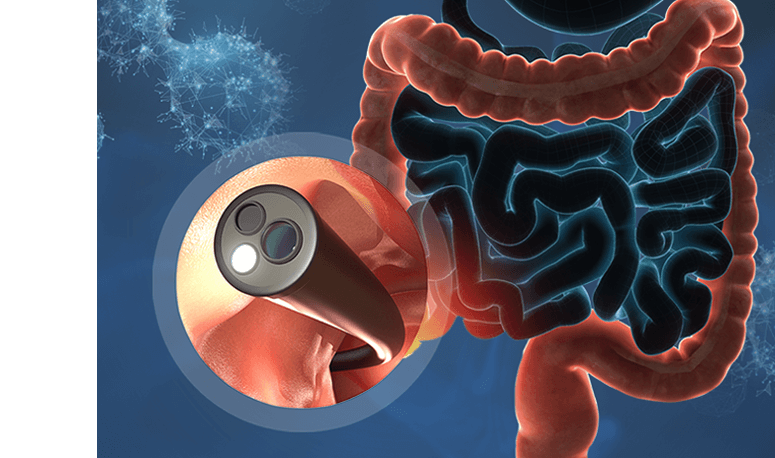While traditional open and laparoscopic methods remain effective, robotic surgery offers enhanced precision, especially in complex pelvic areas. In Singapore, where colorectal cancer is prevalent, robotic-assisted techniques are available through select colorectal surgeons trained in this specialised approach. These advanced systems offer greater control, improved visualisation, and enhanced dexterity.
What Is Robotic Colorectal Surgery?
Robotic colorectal surgery is a minimally invasive surgical technique used to treat conditions of the colon and rectum, including colorectal cancer. Unlike traditional open or laparoscopic surgery, this method uses robotic systems that enhance the surgeon’s precision, control, and visibility during the procedure.
This approach is particularly useful for rectal cancer surgeries, where tumours are located deep in the pelvis. In such cases, preserving bowel control is often a key goal. Robotic systems provide greater precision in these confined spaces, helping surgeons protect surrounding nerves and improve the chances of preserving normal function.
What Are the Benefits of Robotic Colorectal Surgery?
Robotic colorectal surgery offers several advantages over traditional and laparoscopic techniques, especially for complex cases like rectal cancer.
- Small Incisions — Robotic techniques use small cuts, which may lead to less pain after surgery, a lower risk of infection, and smaller scars.
- Lower Risk of Complications — The improved precision of robotic surgery may reduce the likelihood of some issues, such as wound infections, hernias, or scar tissue formation (adhesions).
- Smoother Recovery — Robotic surgery can support a more comfortable recovery and may allow patients to resume light activities earlier than with traditional surgery.
- Enhanced Precision — Robotic systems offer enhanced visualisation and precision, which is especially important for challenging cases. This can help surgeons protect surrounding nerves and important structures.=
What Conditions Can Be Treated with Robotic Colorectal Surgery?
While advantageous in many cases, robotic colorectal surgery is not always suitable. The decision to use robotic surgery depends on the individual patient's specific condition and clinical requirements.
Robotic surgery may be a helpful approach for the following conditions:
Colorectal Cancer
— Especially useful for rectal cancer, where the robot facilitates careful dissection in the narrow pelvic space, which may help preserve nerves and reduce complications.Diverticulitis
— Helps remove affected bowel segments more precisely, which may support a smoother recovery.Inflammatory Bowel Diseases
— In selected cases of Crohn’s disease or ulcerative colitis, robotic surgery allows careful handling of inflamed tissues, potentially lowering the risk of complications.Rectal Prolapse
— Assists in repositioning the rectum while minimising strain on nearby nerves and tissues.Benign Tumours or Polyps
— May be used to remove large growths that cannot be safely removed during a colonoscopy.Multivisceral Resections
— Offers better access when colorectal procedures are performed alongside gynaecological or urological surgery.
Robotic-assisted surgery offers enhanced precision, especially in the confined pelvic space where traditional methods may be limited.
Speak with our team today to find out if this advanced technique is right for you.
How Do You Prepare for Robotic Colorectal Surgery?
Preparing for robotic colorectal surgery involves more than just medical tests. It includes physical, emotional, and practical steps to help ensure a safe procedure and smoother recovery:
- Preoperative Assessments — Your doctor will review your health, perform necessary tests, and plan the surgical approach.
- Diet and Bowel Preparation — You may need to follow a clear liquid diet and take laxatives or enemas to clear your colon.
- Lifestyle Modifications — Staying active, eating well, quitting smoking, and getting enough rest can support healing.
- Medication Adjustments — Your doctor will review your medications, which may need to be adjusted or paused before surgery.
What Happens During Robotic Colorectal Surgery?
Robotic colorectal surgery begins with a few small incisions in the abdominal wall, allowing the introduction of a high-definition, 3D camera and robotic instruments. The camera provides a magnified view, enabling the surgeon to clearly visualise the tumour, surrounding tissues, and vital structures.
The robotic system translates the surgeon’s hand motions into precise micro-movements, facilitating tissue dissection, vessel sealing, and suturing. The procedure aims to remove cancerous tissue and nearby lymph nodes while preserving maximum healthy tissue and function.
What Happens After Robotic Colorectal Surgery?
After robotic colorectal surgery, vital signs, bowel activity, and pain levels are carefully assessed in the first few hours. Most patients stay in hospital for 3 to 5 days, although this can vary based on the complexity of the surgery and individual recovery needs.
Once home, healing continues gradually over the next few weeks. Light activities are often resumed within 1 to 2 weeks, while returning to usual routines may take 4 to 6 weeks, depending on your condition and progress.
Potential Risks or Complications of Robotic Colorectal Surgery
While its minimally invasive nature significantly reduces the likelihood of complications, it is important to acknowledge that risks can still occur following robotic colorectal surgery.
- Infection Mild redness or swelling may occur near the incision sites
- Bleeding Significant bleeding is rare but may need medical attention
- Anaesthesia Reactions Some patients may experience breathing issues or allergic reactions
- Anastomotic Leakage In some cases, the site where the bowel is rejoined may take longer to heal properly, potentially requiring further treatment
Rest assured, your surgeon will take careful steps to reduce these risks and monitor your recovery closely.
Dr Dennis Koh has performed numerous robotic-assisted resections and reconstructions, handling each case with a personalised approach.
Contact us today to book a consultation and explore your options.
FAQs








Our Colorectal Surgeons

Dr Dennis Koh
Medical Director & Senior Consultant Surgeon
B Med Sci (Nottingham), MBBS (Nottingham)
MMed (Surgery), FRCS (Edinburgh), FAMS
Dr Dennis Koh is a MOH-accredited and experienced colorectal surgeon with specialised expertise in the management and treatment of colorectal cancer; and currently the Medical Director at Colorectal Practice.
Dr Koh strives to provide a customized treatment plan for each patient, which allows for better outcomes. He also honed his skills in proctology abRd in Geneva, bringing a more diverse touch to his practice.

Dr Sharon Koh Zhiling
Senior Consultant Surgeon
MBBS (Singapore), MMed (Surgery),
FRCS (Edinburgh), FAMS
Dr Sharon Koh is an experienced colorectal surgeon and the former Director of Endoscopy at Alexandra Health. She has subspecialty training in colorectal surgery, minimally invasive surgery, and advanced endoscopy — particularly in the field of colorectal cancer.
Dr Koh completed her fellowship at Cedars-Sinai Medical Centre in the US after being awarded the Academic Medicine Development Award by the National University Hospital.

Dr Pauleon Tan Enjiu
Senior Consultant Surgeon
MBBS (Singapore), MMed (Surgery),
FRCS (Edinburgh), FACS
Dr Pauleon Tan has served in public hospitals for over 15 years and is experienced in minimally invasive surgery and endoscopy. He is also experienced in the treatment for colorectal cancer, and strives to provide the best possible care to his patients.
Dr Tan undertook advanced colorectal surgical training at Japan’s Saitama International Medical Center after being awarded the Ministry of Health – Health Manpower Development Plan (HMDP) Award.



